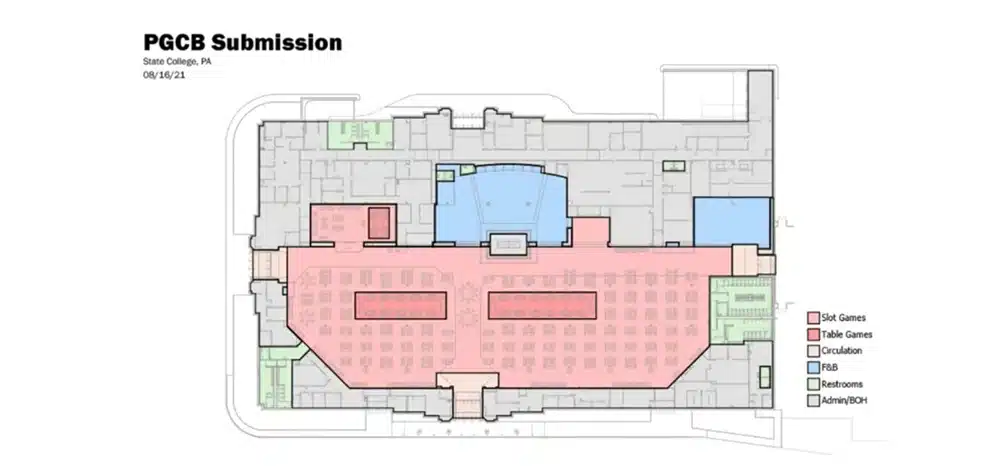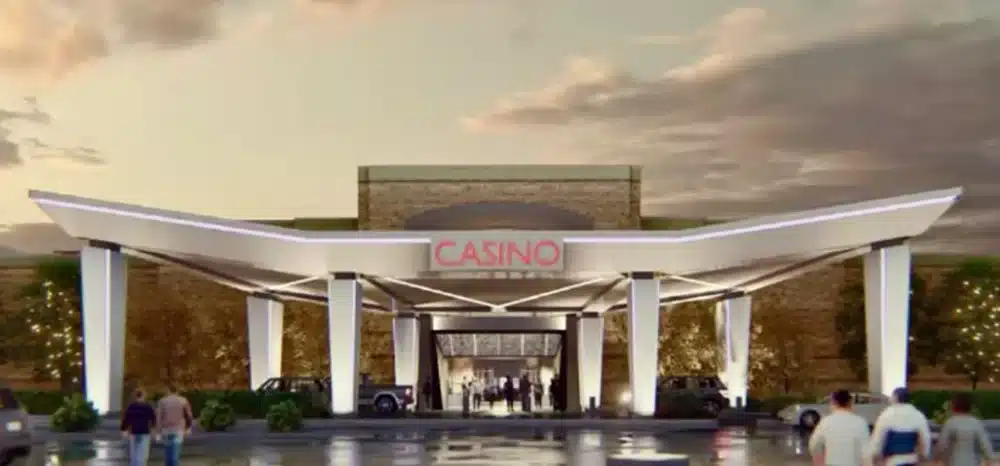Nittany Mall mini-Casino is still on hold
Two and a half years have passed since Ira Lubert (SG gaming) won the Pennsylvania Gaming Control Board Category 4 mini-casino license. The green light for the anticipated Nittany Mall casino in Centre valley is still held back in court hearings.
What is a Mini-Casino?
Pennsylvania was the first state to introduce mini-casinos in 2017, along with online gaming, interactive lotteries, video gaming terminals, and sports betting. Since then, mini-casinos have been slow to get underway in Pennsylvania. Mini casinos are designed to cover territories between bigger casinos due to the state legislation prohibiting new casinos from being within 40 miles of existing brick & mortar casinos to prevent overlap.
Unlike traditional casinos, mini-casinos are smaller, have fewer slot machines and table games, and serve confined regions. Mini casinos feature between 300 and 700 slot machines and 20 to 30 table games. in comparison – the average casino holds between 1,500 and 3,000 slots and 30 to 100 tables.
Why Mall Casinos?
Despite the gambling venue size and other restrictions, mini-casinos offer plenty of advantages, from being more private and quiet to creating more local jobs. This and other advantages facilitated collaborations between mall owners and casino operators throughout the state.
Mall owners benefit in terms of attracting more visitors, and casino operators benefit from utilizing the mall advantages such as built-in traffic, marketing efforts, parking space, and all the other needed amenities to support their venture without making a significant investment.
The Nittany mall mini casino history
After securing the mini-casino PGCB license in partnership with Bally’s, Ira Lubert faced many challenges. The primary challenge was the opposition from Stadium Casino LLC and Cordish Companies, bidding to open their casino on location. Both companies filed a lawsuit against the Pennsylvania Gaming Control Board, claiming that the board was violating the state’s gaming law by allowing Lubert’s SC Gaming to proceed with their bid.
In addition, Lubert faced opposition from community members concerned about the possible dangers of a mini-casino in the area. Some argued that the casino would lead to increased crime, traffic, and gambling addiction, while some suggested that the casino take away businesses from existing restaurants and hotels. Lubert had to address these concerns by holding public meetings, addressing the community’s doubts about the project, and reassuring them that the mini-casino would assist the community by adding over 300 jobs to the job pool. As for safety – the mini-casino will have all measures in place to ensure responsible gambling, such as self-exclusion programs and on-site counseling service.
Present situation:

Stadium Casino RE, LLC has gained some ground in its legal battle against SC Gaming over the Bally’s Casino license in State College as a court order has been issued against SC Gaming and the PGCB by the Commonwealth court. A three-judge panel has ordered SC Gaming and the PGCB to respond within 30 days to allegations regarding Bally’s Casino license eligibility.
State law requires bidders to have ownership of existing casinos in PA. Under this law, Lubert’s original bid was submitted through his ownership in Rivers Casino, Pittsburgh. But, in January 2021, Bally’s announced a partnership with Lubert on the casino project, which caused concern as Bally’s was not a part of the original bid due to needing a PA license.
What’s next?
The controversy surrounding the local Nittany mall casino license in State College, Pennsylvania, remains ongoing. SG gaming and Bally’s casino have defended themselves against the allegations and will probably continue doing so in the next 30 days. If the allegations against SC gaming and the PGCB are proven true, it might lead to the mini-casino license termination and potentially impact the casino’s operations and the local economy and might have higher-level implications on the industry in general.


